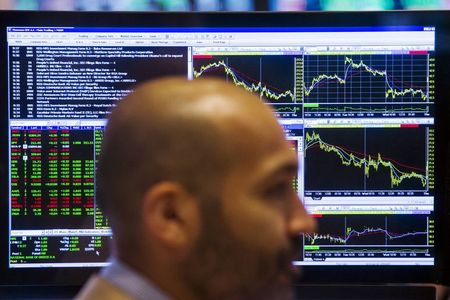Follow us on LinkedIn
Brokers and dealers are two key figures in the security market. However, both have their distinct functions and relevance to the security market.
Practically, there is no security market without a broker. A broker provides a technical base for transactions. On the flip side, a dealer trades securities for his(her) own profit. Let’s take a detailed look at the two figures and see how they differ.
Who is a Broker?
In the security market, a broker acts as an intermediary between a seller and a buyer, facilitating transactions. A broker (either be an individual or a corporate entity) trades on behalf of another for a commission. Put another way, he(she) executes a trade on behalf of stock traders, based on their instructions, and receives a fee as compensation.
This fee can be fixed or a particular percentage of the amount used for a transaction, it all depends on the agreement between the broker and their client.
However, aside from mediation – connecting buyers and sellers of securities, brokers offer their clients some other key benefits which include:
- Provide support for clients via helpful information regarding trading; trading strategies and mechanisms, activities of other market participants, notifications about quotes, etc. In other words, brokers can help to facilitate learning and success in security trading.
- Provide a platform for transactions.
- Stores and protects clients’ data.
- Lend securities to clients for margin transactions.
Who is a Dealer?
In the security market, a dealer buys and sells securities for their profit. Dealers diligently follow market moves, ready and willing to take advantage of every opportunity to buy securities.
Generally, the sole target of a dealer is to make a profit for themselves from the spread between the bid and ask prices. By doing so, dealers contribute to the liquidity of the security market.
Hence, conclusively, a dealer does not facilitate trade nor connect the two parties (sellers and buyers) rather they trade on their own behalf.
Key Differences Between Brokers and Dealers in Securities
- A broker facilitates transactions in the security market by creating a technical base for exchange between sellers and buyers. In contrast, a dealer does not facilitate trading, they carry out trading activities for their own benefit.
However, most dealers also double as brokers and are called broker-dealers.
- A dealer does not receive a commission for trade unlike a broker, he/she trades in their account and therefore is the principal. A broker charges the client a commission for trading on their behalf.
- Brokers trade based on what their clients want, whereas dealers do not take instructions from anyone regarding trades.
- A dealer tends to have more knowledge about securities trading than a broker. Since they trade on their behalf, they will dig into every information necessary for profitable trading. This might give them an edge over brokers who only act according to the instructions of their clients.
Bottom Line
Both brokers and dealers matter in the security market. While a broker enables the transaction of securities, a dealer ensures that the market stays liquid, which is also very vital to the existence of the market.
Further questions
What's your question? Ask it in the discussion forum
Have an answer to the questions below? Post it here or in the forum




